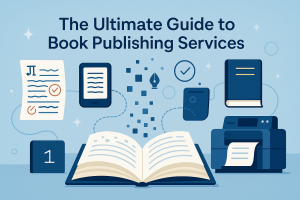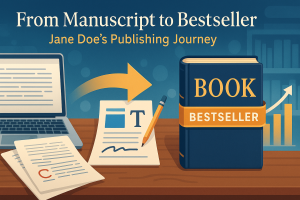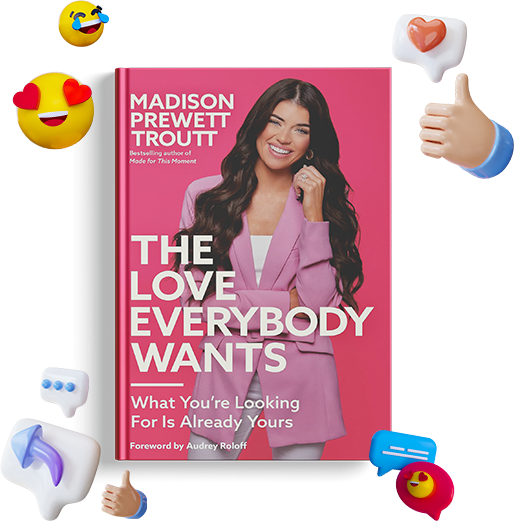The publishing landscape in 2025 is more dynamic and diverse than ever. With an array of publishing options available from traditional publishing houses to modern self-publishing platforms it’s essential for authors to navigate these choices with care and confidence. This comprehensive guide is designed to help you understand the key factors in choosing a publisher, evaluate the best publishing options for your needs, and ultimately select the right book publishing service to showcase your work. As the industry evolves, both traditional and self-publishing avenues offer unique advantages, and knowing which one aligns with your goals will determine your path to success.
In the sections below, we will explore the changing face of book publishing, guide you through the considerations that should shape your decision, and offer actionable advice that is tailored to the demands of 2025. Whether you’re an emerging author or a seasoned writer looking to adapt to the modern market, this article provides insights to help you make an informed choice.
Understanding the Publishing Landscape in 2025
The Evolution of Publishing
The book industry has undergone a significant transformation over the past decade. The advent of digital technology, coupled with evolving reader habits, has dramatically reshaped how content is produced, marketed, and consumed. In 2025, authors are no longer limited to seeking out a traditional publishing house; they can choose from a variety of strategies that best suit their vision and financial needs.
Where traditional publishing used to dominate the scene, emerging self-publishing platforms now allow for complete creative control and quicker turnaround times. However, the proliferation of options means that authors must be critical in evaluating what each service offers. Whether your focus is on mass distribution, creative control, or a hybrid approach, being well-informed is the first step towards success.
Trends Shaping Book Publishing Today
Several trends are setting the stage for the future of publishing:
- Digital Transformation: The rapid shift to digital content means that eBooks, audiobooks, and interactive media formats have become critical components of an author’s portfolio.
- Direct-to-Consumer Models: With social media and online sales channels evolving, writers are finding innovative ways to reach their audiences without traditional gatekeepers.
- Hybrid Publishing Options: Many modern services now offer hybrid models that combine the benefits of traditional publishing (such as editorial support and marketing) with the flexibility of self-publishing.
- Author Empowerment: Today’s authors are more empowered than ever to take control of their publishing careers. Tools and resources for independent publishing have matured, enabling writers to manage everything from design to distribution.
- Global Reach: Technological advancements allow authors to tap into international markets, opening new avenues for reader engagement around the world.
These trends emphasize the need for authors to be proactive and adaptable, especially when deciding on the right platform that aligns with their creative and commercial objectives.
Evaluating Your Publishing Options
Selecting the right publishing service involves careful evaluation of your options. At the core, the decision should align with your objectives, whether that’s achieving widespread recognition, retaining creative independence, or generating revenue quickly. Below are some key considerations when evaluating your options.
Traditional Publishing
Pros:
- Credibility: Traditional publishers provide a level of prestige and have established distribution networks that can secure shelf space in major bookstores.
- Professional Support: These houses offer a range of professional services, including editing, cover design, and marketing.
- Advance Payments: Authors may receive an advance against future royalties, which can provide financial stability during the writing process.
Cons:
- Lengthy Process: The traditional publishing route is known for its slow pace—from manuscript submission to publication, the timeline can stretch out for years.
- Lower Royalties: While the advance may be appealing, royalty rates for traditionally published books are often lower compared to self-publishing.
- Limited Creative Control: Traditional houses tend to have strict guidelines and may require changes to your content.
For those who desire a prestigious platform with extensive industry connections, traditional publishing can be ideal. However, if speed and creative autonomy are paramount, you might consider alternative options.
Self-Publishing
Pros:
- Creative Freedom: Self-publishing gives you complete control over your manuscript, design, and marketing strategies.
- Higher Royalties: Authors who self-publish can retain a larger portion of the sales revenue.
- Speed to Market: The self-publishing process often allows for a quicker turnaround from manuscript completion to market release.
Cons:
- Upfront Investment: Costs associated with editing, design, and marketing are typically borne by the author.
- Distribution Challenges: While digital platforms have eased distribution barriers, establishing credibility in brick-and-mortar stores can remain a challenge.
- Marketing Responsibility: In the absence of a publisher’s marketing muscle, authors are responsible for creating and executing their own promotional strategies.
Authors opting for the self-publishing route must be prepared to handle both the creative and business aspects of the book. This path demands a willingness to invest time and money, along with the ability to manage the intricacies of book marketing and distribution.
Hybrid Publishing: A Middle Ground
Hybrid publishing seeks to offer the best of both worlds by combining elements of traditional and self-publishing. In this model, publishers provide a suite of professional services while allowing the author to retain more control and a greater share of the revenue. For example, reputable platforms offering comprehensive Book Publishing Services may help you navigate the entire publishing process while giving you a personalized experience that balances autonomy and support.
Hybrid options are especially attractive for authors who value professional guidance but do not want to relinquish creative independence. Always investigate the reputation, track record, and service details of hybrid publishers to ensure that their offerings align with your goals.
Factors to Consider When Choosing a Publisher
When selecting the ideal publisher, whether traditional, self-publishing, or hybrid, there are several critical factors to consider. These aspects will not only influence your immediate publication outcomes but also shape your long-term career as an author.
1. Your Publishing Goals
Before initiating your search for a suitable publisher, it’s important to define your goals. Ask yourself:
- Do you want to achieve national or international recognition?
- Is financial reward your primary objective, or is creative control more important to you?
- Are you looking for extensive editorial support or a fast-track route to publication?
Clearly defining these objectives will assist you in narrowing down the publishers that best align with your vision.
2. Editorial Support and Services
Quality of editorial support is paramount. Evaluate the range of services a publisher offers, including:
- Manuscript Editing: Ensure the service has a robust editing process, including developmental, copy, and proofreading stages.
- Design and Formatting: Book cover design and interior layout contribute significantly to a reader’s first impression.
- Marketing Support: Determine if the publisher provides marketing and promotional support. A publisher with a strong marketing track record can enhance your book’s visibility.
3. Distribution Channels
One of the key benefits of traditional publishing is access to established distribution networks. Consider:
- Retail Presence: Does the publisher have relationships with major bookstores and retailers?
- Digital Distribution: In 2025, digital and audiobook formats are crucial. Ensure the publisher can distribute across multiple digital platforms.
- Global Reach: Evaluate whether the publisher has the capability to market your book in international markets.
4. Financial Considerations
Understanding the financial implications of your publishing journey is essential:
- Upfront Costs vs. Royalties: Traditional publishers might offer advances but lower royalty rates, while self-publishing may demand initial investment but yield higher royalties.
- Transparency: Examine the publisher’s contract for transparency regarding revenue sharing, royalty calculation, and any hidden fees.
5. Reputation and Track Record
Research the publisher’s history and reputation within the industry:
- Success Stories: Look for success stories or testimonials from authors who have published similar genres.
- Industry Reviews: Investigate independent reviews and feedback from other authors.
- Awards and Recognitions: A publisher that has garnered industry awards or nominations can be a strong indicator of quality and industry standing.
6. Flexibility and Creative Control
Depending on your artistic vision, you may prefer a publisher that allows more flexibility:
- Content Freedom: Some publishers may demand changes to fit market trends. Decide if this aligns with your creative vision.
- Contract Terms: Pay careful attention to the rights you’re required to relinquish and the duration of the contract.
7. Technological Capabilities
In the digital age, the technology behind a publisher’s operations can be a major determinant of success:
- User-Friendly Platforms: The ease of managing digital rights and marketing tools can significantly influence your experience.
- Data Analytics: Access to sales data and reader feedback can empower you to adjust your strategies for future publications.
Traditional vs. Self-Publishing: Advantages and Disadvantages
As you weigh your options, it’s important to understand the inherent trade-offs between traditional and self-publishing. While each option has its merits, the decision should depend on your personal priorities and readiness to assume various responsibilities.
Traditional Publishing
Advantages:
- Established Credibility: Traditional publishing has a longstanding reputation and access to curated networks that can boost your profile.
- Professional Infrastructure: With integrated teams for editing, design, and marketing, traditional publishers offer a comprehensive support system that can help elevate your work.
- Broad Distribution: Established publishers maintain robust relationships with global retailers, significantly enhancing the reach of your book.
Disadvantages:
- Lack of Speed: The process, from manuscript submission to book release, can be prolonged and unpredictable.
- Restrictive Contracts: Traditional contracts may limit your creative freedom and have long-term contractual obligations.
- Lower Royalties: Although advances can be appealing, the percentage of royalties provided may be lower than what is obtainable through self-publishing.
Self-Publishing
Advantages:
- Control Over the Process: Self-publishing provides the ultimate creative control, from content revisions to cover design.
- Higher Income Potential: With higher royalty rates and direct sales channels, self-publishing can be more financially rewarding.
- Faster Turnaround Time: You can publish your work quickly, making self-publishing an attractive option for timely topics or series.
Disadvantages:
- Financial Risk: The need to invest in quality editing, design, and marketing can add up, especially if sales do not meet expectations.
- Limited Physical Distribution: Despite robust digital platforms, securing placement in physical bookstores remains challenging.
- Learning Curve: Authors must master both creative and business competencies to effectively manage their publishing careers.
Hybrid Publishing
Hybrid publishing offers a blend of the traditional and self-publishing models. It provides professional support while maintaining a level of creative freedom. Authors opting for this route can benefit from the expertise of established professionals without sacrificing too much control over their work. Evaluating a hybrid service requires a careful balance—ensuring that the services provided match your vision and financial goals.
How to Choose the Right Book Publishing Service in 2025
The decision of choosing a publishing service should stem from a deliberate analysis of your personal objectives, resources, and the unique characteristics of your manuscript. Here are some actionable steps to guide you through this journey:
Step 1: Define Your Objectives
Begin by outlining your career objectives and writing goals. Ask yourself:
- What do I hope to achieve with my book? (e.g., cultural influence, commercial success, or niche readership)
- Am I prepared to manage the business aspect of my book if I choose to self-publish?
- Do I have a clear vision that may require tight creative control, or do I value the guidance of a seasoned professional team?
Clear objectives will steer you towards the service that best suits your short-term and long-term goals.
Step 2: Conduct Comprehensive Research
Research is paramount in selecting a publishing service. Leverage online resources, industry reports, and author testimonials to compile a list of potential publishers. Consider both established names and emerging players in the field. Information gathering should cover:
- Service reviews and success stories
- Comparison of offerings, such as choosing a publisher who not only enhances your book’s quality but also aligns with your career aspirations
- Detailed analysis of contract terms and financial commitments
This meticulous research ensures you are not solely relying on marketing materials, but rather on concrete evidence and peer experiences.
Step 3: Evaluate the Quality of Services
Quality is a decisive factor. Evaluate the tangible benefits provided by the publishing service:
- Editorial Process: Look for rigorous quality control in editing, proofreading, and design. High-quality editorial support often translates directly into improved reader engagement.
- Marketing and Distribution: A robust marketing strategy combined with effective distribution networks will enhance your book’s success.
- Customer Support: Check for personalized support channels that can help you navigate the complexities of the publishing process.
Before making a final decision, consider seeking out references or direct feedback from authors who have used these services previously.
Step 4: Consider the Financial Implications
Financial planning is crucial in determining the right publishing route. Consider:
- Cost-Benefit Analysis: Compare the potential earnings (royalties and advances) against any out-of-pocket expenses.
- Long-Term Value: Consider not just the immediate financial implications, but also the long-term value of partnering with a service that can build your brand as an author.
- Hidden Fees: Always read the fine print. Transparency in financial matters is a strong indicator of a reputable publishing service.
For instance, many authors turn their attention to understanding costs related to modern publishing models, such as exploring detailed information on amazon self-publishing cost before diving in.
Step 5: Test the Waters With a Small Project
If possible, consider testing your chosen publishing service with a smaller project or a short series of content. This trial phase can provide you with invaluable insights into the quality, support, and overall process of the service. Through this approach, you can gauge the publisher’s responsiveness and the overall quality of their work without committing to a large project immediately.
Step 6: Plan Your Marketing Strategy
A well-thought-out marketing strategy is the backbone of a successful book launch. Evaluate how the publishing service supports your promotional efforts. Consider:
- The use of both traditional and digital marketing methods.
- Online marketing resources that can amplify your book’s presence.
- Guidance on building your author brand and readership.
Detailed insights on promoting your work can be immensely beneficial. Authors interested in expanding their outreach may find resources on how to market your own book invaluable, ensuring that your book not only reaches but also resonates with your target audience.
Key Considerations for 2025 Publishing Options
In a rapidly changing market, authors need to be nimble and well-informed about the evolving publishing options. Let’s delve deeper into some critical considerations for authors in 2025.
Integrating Technology With Traditional Craft
Modern publishing requires a seamless integration of technology with the traditional art of writing. Innovative digital tools offer analytics and reader feedback that can influence marketing strategies and even creative decisions for future projects. Embracing a data-driven approach helps authors understand reading trends, optimize marketing channels, and ultimately make better strategic decisions.
Adapting to Reader Preferences
The digital age has given rise to more interactive and personalized reading experiences:
- Customization: Readers today expect content that is accessible in various formats, such as eBooks, audiobooks, and interactive apps.
- Engagement: Utilizing social media platforms and online communities allows for direct interaction between authors and readers. This connection can significantly enhance your book’s impact.
- Feedback Loops: Real-time reader feedback offers immediate insights into what resonates, guiding future writing and marketing decisions.
Adapting to these trends is not optional in 2025; it’s a necessity for success. In this context, a strategic approach to understanding how many pages should a book be can provide practical insights into tailoring your book’s format to meet modern readers’ expectations.
Understanding Global Markets
Globalization has transformed the audience landscape. Today, your potential readership is spread across continents. This international reach calls for:
- Localized Marketing: Tailoring your promotions to specific regions can significantly boost your book’s reception.
- Cross-Cultural Sensitivity: Content that respects and reflects diverse cultural perspectives resonates better with a global audience.
- Digital Accessibility: Ensuring that your book is available across various international digital platforms will drive greater reach and engagement.
These global dynamics necessitate that authors are not just content creators, but strategic market players, ready to navigate both local and international landscapes.
Practical Tips for a Successful Publishing Journey
In addition to understanding your options and weighing financial and creative factors, here are some practical, actionable tips that can enhance your path to selecting the best publishing service in 2025.
Build a Solid Manuscript Foundation
Before engaging with any publisher, invest time in honing your manuscript.
- Editing and Proofreading: Enlist professional help to ensure your manuscript is polished. A well-edited manuscript can significantly improve your chances of securing the right publishing partner.
- Format and Design: Research book design trends and format your text to meet the latest standards. Presentation matters, and first impressions are key.
Research and Shortlist Potential Publishers
When evaluating potential publishing partners, thorough research is essential:
- Read Reviews: Look for reviews and testimonials from other authors who have worked with the publisher.
- Examine Portfolios: Analyze the publisher’s catalog of published works to see if their style and quality match your expectations.
- Attend Webinars and Workshops: Many publishers offer free webinars or workshops that provide insights into their process and expertise.
Networking Within the Publishing Community
Networking is invaluable in the literary world. Establish relationships with other authors, editors, and industry professionals. Engage in:
- Writing Groups: Join writing communities and forums to share experiences and gain insights.
- Conferences and Fairs: Participate in literary conferences and book fairs where you can meet representatives from various publishing services.
- Social Media Engagement: Follow industry experts and publishers on platforms like Twitter, LinkedIn, and Instagram to stay updated on trends and opportunities.
Stay Informed About Industry Innovations
As the publishing industry continues to evolve, staying informed about the latest trends is crucial:
- Industry News: Regularly follow industry news to learn about new publishing platforms and market shifts.
- Technological Advancements: Be open to using new digital tools that can streamline editing, distribution, and marketing.
- Beta Testing: Consider beta testing new services and platforms to get firsthand experience and competitive insights.
Craft a Flexible Marketing Strategy
Marketing is one of the most critical components of a successful book launch. A robust strategy might include:
- Social Media Campaigns: Leverage platforms to build anticipation before your book launch.
- Content Marketing: Write blogs, participate in podcasts, and engage with online communities to build your personal brand.
- Email Newsletters: Build and maintain an email list to inform potential readers about your book’s release.
- Paid Advertising: Consider investing in targeted online ads to reach a broader audience.
A detailed understanding of publishing options 2025—the rapidly evolving landscape—can give you an edge in crafting strategies that resonate with modern readers.
Learning from Others
Seek advice from successful authors and industry professionals:
- Mentorship: Identify mentors who have successfully navigated the publishing world. Their insights can be invaluable in guiding your decisions.
- Case Studies: Analyze case studies of successful book launches to understand what worked and what didn’t.
- Feedback: Be open to constructive criticism, both from professionals and peers, to refine your manuscript and marketing approach.
Final Thoughts: Navigating the Future of Publishing
Choosing the right book publishing service in 2025 is a multifaceted process. With technology reshaping every aspect of the industry, authors must balance traditional values with modern innovation. Whether you decide on a traditional, self-publishing, or hybrid route, the key is to be informed and proactive.
In summary, the journey toward selecting the best publisher begins with setting clear publishing goals and conducting thorough research. From evaluating financial considerations and editorial quality to understanding the global market and technological advancements, every factor plays a role in your decision-making process. In today’s rapidly evolving environment, it’s essential to choose the service that not only supports your creative vision but also equips you with the tools to succeed in a competitive market.
Remember, the ultimate goal is to ensure that your work reaches the right audience through a channel that values your creativity and nurtures your talent. By taking a meticulous, step-by-step approach to selecting your publishing partner, you empower yourself to achieve lasting success as an author.
Building Your Path with Confidence
Entering the world of publishing in 2025 means embracing change while holding on to the core principles of quality writing. Armed with the right information and a strategic approach, you can confidently make choices that will define your authorial journey.
Every writer’s path is unique, and there is no one-size-fits-all solution. Instead, your choice should reflect your personal style, creative goals, and the level of support you desire. By examining your options, planning your strategy, and seeking out expert advice, you can avoid common pitfalls and find a publishing service that truly aligns with your vision.
Embrace the Opportunities
The future of book publishing is bright, with opportunities that never existed before. Whether you’re drawn to the prestige of a well-known publisher or the independence of self-publishing, 2025 offers exciting avenues to bring your work to a global audience. If you’re in the process of choosing a publisher, consider how the evolving landscape can work to your advantage, opening doors to diverse readerships and innovative marketing strategies.
Stay Agile and Informed
As the industry continues to innovate, staying agile and informed is essential. Regularly update your knowledge about emerging publishing trends, technological advancements, and market expectations. This proactive mindset not only enhances your publishing journey but also positions you as a forward-thinking author who is ready to take on the challenges of the modern literary landscape.
Balancing Creativity and Business
Effective publishing is a blend of creativity and savvy business acumen. While your manuscript is the heart of your work, the strategies surrounding its production, distribution, and promotion are equally important. Understanding every nuance—from the amazon self-publishing cost to the strategic decisions about book length and structure, such as insights on how many pages should a book be—will empower you to make decisions that benefit both your artistic and commercial interests.
Conclusion
The journey to finding the right book publishing service in 2025 is both an exciting and challenging endeavor. With myriad options available, from traditional publishing powerhouses to innovative self-publishing platforms, understanding the nuances of each route is essential. The key is to balance your creative vision with the practical aspects of editing, distribution, marketing, and financial investment.
Through careful self-assessment, diligent research, and strategic planning, you can select a publisher that meets your expectations and sets you on the path to literary success. By leveraging modern resources and aligning with reputable Book Publishing Services, you ensure that your work receives the professional treatment it deserves.
In an industry that continues to evolve rapidly, staying informed about current trends and technological advancements will help you maintain a competitive edge. Remember that your journey as an author is unique, and choosing the right publishing service is a crucial milestone on that path. Armed with this guide, you are now better equipped to navigate the complexities of 2025’s publishing options and make decisions that will benefit your long-term success.









